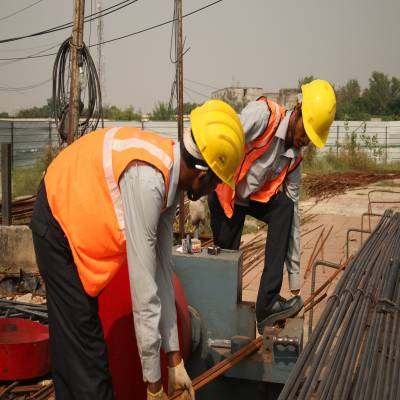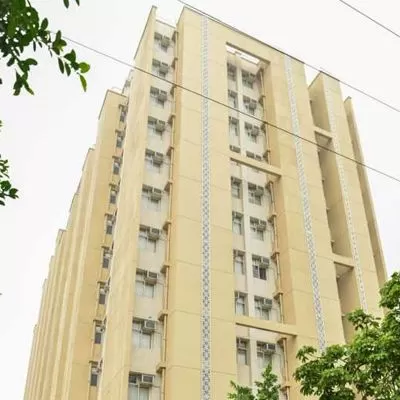Reviving the construction sector in India post COVID-19

The COVID-19 pandemic has brought the entire economy to almost a standstill. In the construction sector , COVID-19 pandemic has created disruptions in the regional, domestic, and overseas construction supply chain and resourcing including availability of labour, plant, machinery, materials, capitals, etc, the impacts of which are expected to be felt over the near and long term.
As the lockdown eases out in the near future, the revival of construction sector is vital for the recovery from an economic impact standpoint of COVID-19. This is also a unique, time bound opportunity for us to promptly respond and reset some of the baselines for the construction sector in India.
In reference to the ongoing pandemic, KPMG in India has released a report titled ?Reviving the construction sector in India post COVID-19?.
Below are some key highlights from the sector that are critical for recovery of the overall economy:
Total projects worth more than Rs 59,000 billion are under development, most of which would have been impacted severely by COVID-19.
India?s goal of becoming a US$ 5 trillion economy rests on the construction of critical infrastructure under the National Infrastructure Plan.
The Indian construction sector employs over 49 million people, close to 12 per cent of the nation?s working population. Further, it has a multiplier effect on nearly 250 allied industries.
A number of construction and developer organisations are supporting the essential needs of labourers at sites while the physical work progress is on a standstill. This is adding to the stress in the value chain.
Construction productivity gets impacted during the monsoon period. Hence, time period until June is a crucial window of opportunity to ramp up construction activity in the country. Initiated carefully with adequate safety measures it can help prevent incremental economic impact.
Says Chintan Patel, Partner and Leader-Building, Construction and Real Estate, KPMG in India, ?Over 49 million people, ie, close to 12 per cent of nation?s working population is employed by the construction sector. Hence, to expedite recovery from the economic impact of COVID, revival of the sector is vital. Given the limitations around available capital, resources and necessary health safeguards in the near future, both project owners and contractors will have to have clear strategies and respond effectively to these four critical questions ? How to prioritise projects given the constraints? How to minimise the impact of COVID and make projects viable again? How to build resilience and safeguard projects from future emergencies? And last but not the least, how to minimise disruptions to the construction process from future disputes and claims??
Reviving the construction sector in India
KPMG in India recommends the below next steps to help make informed decisions and manage projects effectively, post COVID-19.
1. Prioritise projects:
Labour and capital can be expected to be in short supply once the restriction ends and therefore projects should be carefully prioritised over a 30-45 days window. Some key pointers for prioritisation include:
- Immediate and incremental impact assessment of COVID-19 on projects, basis geographic spread and impact from COVID-19, supply chain disruptions, etc.
- Alignment of the project with the strategic intent, national priorities (eg, healthcare).
- Analyse interlinkages and dependencies on the success of other projects.
- Ability to generate immediate and sustained employment across value chain (labour, contractors, engineers, et all).
2. Re visit project definition and delivery strategy:
In a time-bound manner, project owners should chalk out a plan to minimise the impact of COVID-19, to ensure viability and sustenance of projects in a changed environment.
Project owners should revisit strategic alignment of the project.
Review labour availability (given migration and crop harvesting season will alter available pools of skilled/un/semi-skilled), anticipate crew sizing.
Explore off-site, modular construction technologies to optimise time and resources, while enabling controlled working environment for labours.
3. Build resilience:
A three-pronged approach can be used to address construction projects in the future:
Enhancing labour health and safety norms:
- Strengthen guidelines for the stay of labour at site and enhance labour training curriculums to attune them with required safety precaution guidelines.
- Use appropriate digital technologies to enable timely detection and prevention of spread of illnesses (eg. vison-based analytics, thermal imaging, digital fencing, etc).
Strengthening project governance:
- Establish a high-powered task force to expedite project approvals, timebound settlement of arbitrations/disputes, resolve land acquisition issues to kick start stuck projects and prevent any further
project delays.
- Undertake capacity building by setting up of independent, empowered project monitoring units to ensure timely and within budget projects.
Leveraging business continuity planning:
- Implement a business continuity plan including clear guidelines for critical project and organisation operations.
- Digital push: Provide digital enabled environment for remote working including online project monitoring etc.
4. Strengthen contractual provisions:
Post COVID-19, the construction sector could consider the introduction of new clauses in future contracts, to set out clear guidelines for action and relief in extreme eventualities, and to minimise disputes that may arise at such a time
- Possibilities of contractual relief to be passed on by the project authorities and project owners to the contractors, sub-contractors.
- Setting out clear guidelines on facilities to be provided by contractor for workers, which need to be mandated by project owners in the contract.
- Implementation on integrated Project Delivery Framework, which is based on a joint contract between the key stakeholders within a project environment and share mutual risks and rewards, with an overall focus on successful project delivery.
Click here for the full report.












